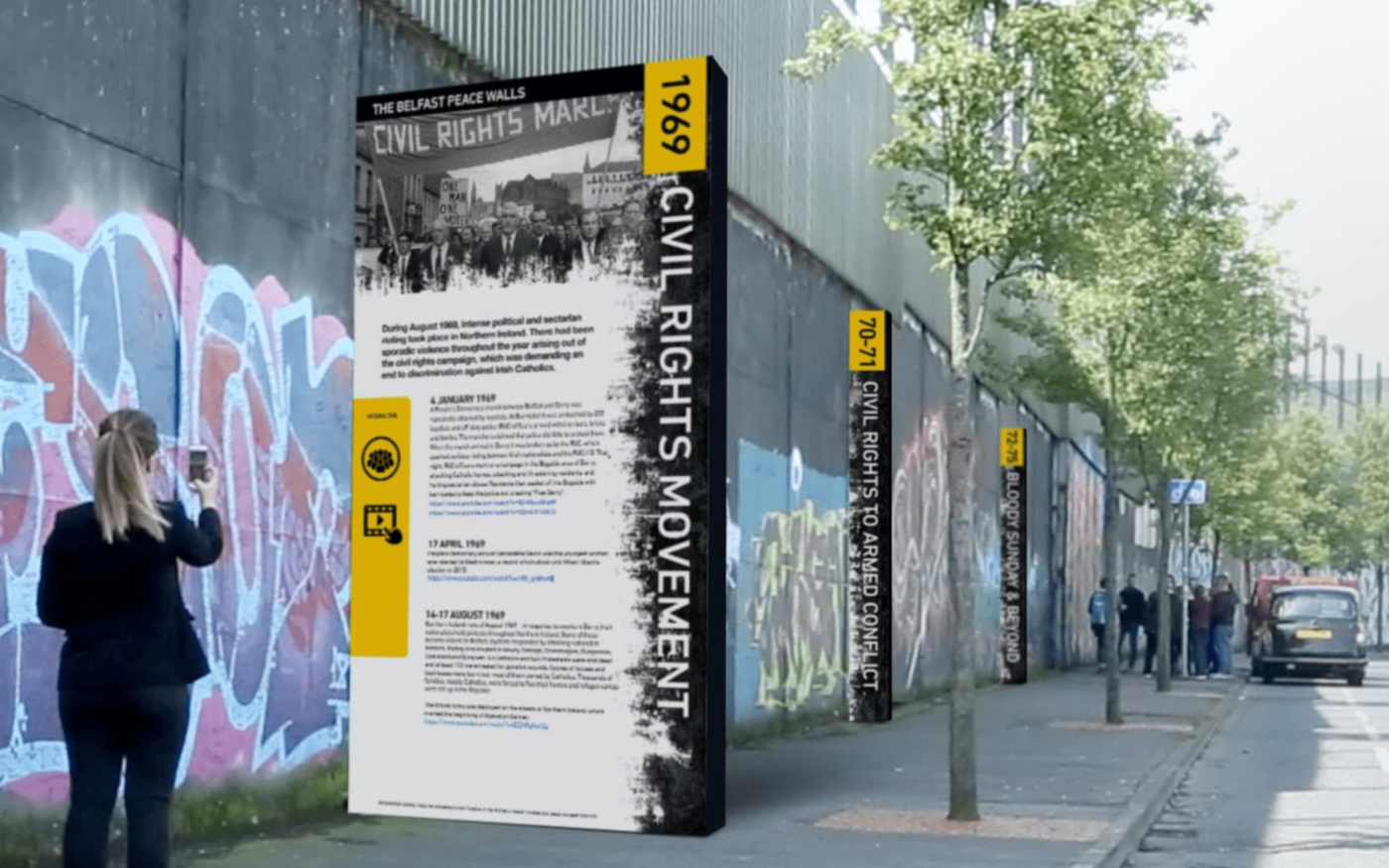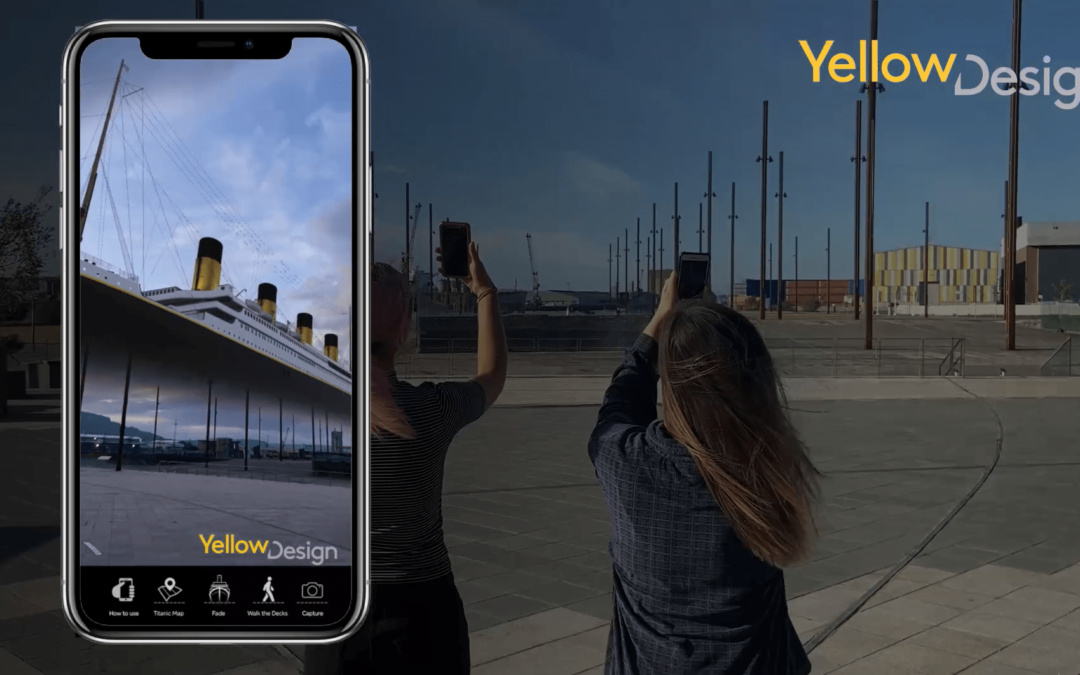Belfast-based Yellow Design, a member of the Future Screens Northern Ireland (FSNI) creative cluster, is developing an augmented reality platform called AR360 that helps city councils share local stories with tourists via their smartphone. FSNI support for the work has included funding a fellowship for Yellow Design Creative Director Michael McGlade. Michael tells us more about the AR360 project and how the Covid19 pandemic has highlighted new opportunities.
Where did the idea for AR360 come from?
It was born out of a challenge set by Belfast City Council in 2018 to explore ways in which smart technology can boost infrastructure, health, economic growth and tourism. Since then, COVID19 has left the tourism industry vulnerable and Yellow Design knows from its conversations, particularly with Belfast, that there is a desire to build back bigger, stronger, smarter and safer.

How does AR360 work?
It works via a multi-lingual smartphone app, providing a series of AR experiences that can be tailored to different cities. For example, in Belfast, visitors can design and race their own virtual DeLorean car while waiting for their bus to arrive, or they can see a full scale recreation of Titanic in its original dock and at the Belfast Peace Walls, they can use the app to walk along a virtual, interactive timeline to learn more about the city’s history and the Good Friday Agreement.
The app can be linked to real-time public transport data and includes user profiling technology and wayfinding tools. It can also make tailored recommendations for other places to visit (think Netflix for tourism) and provide location-based marketing offers to encourage visitors to support the local economy.
Who is the audience?
There are several – the first is the tourist using the app, then there are city councils both in the UK and potentially internationally. Yellow Design can work with local governments to create in-app experiences and local marketing opportunities. Councils can also use platform data to better understand tourist movement and create app offers to encourage them to move to different sites or visit underexplored parts of the city. Local businesses are another audience – for example, the app tells you your next bus is 10 minutes away and an offer pops up for a local coffee shop.
What impact has the COVID19 pandemic had on your work?
It has opened up new opportunities for wayfinding tools. For instance, the team has added a one-way system to its Titanic exhibition app route. Its virtual pods – think digital information booths that pop up on your smartphone at different points around an exhibition – mean visitors can still access information without touching anything other than their own phone.
How is FSNI supporting the work?
FSNI has been invaluable in helping Yellow Design to work out which routes of funding to follow up on, and even pointing out where funds can be found. Finding funds can be confusing and time consuming (time is an especially precious commodity for small-to-medium enterprises ). Without their advice Yellow Design would have missed out on opportunities.
FSNI has provided a cash award of £21,000 which, accompanied by a development package of £28,000, which has been matched with £15,000 in cash and in-kind support from industry through the Future Fellowship Programme. As part of this, Yellow Creative Director, Michael McGlade has been sharing his knowledge with Ulster University on smart cities and the use of AR. He has also worked with FSNI to lobby local government to get recognition for the creative industries in Northern Ireland as a driver for future economic growth.
What is the future for AR360?
Yellow Design is in discussion with a number of national and international cities interested in rolling the platform out in other locations.
Yellow and FSNI also hope that AR360 – as a working example of a smart city tourism app – will drive further investment from Belfast City Council into the app and similar technologies. Ideally investment would come from within Northern Ireland rather than the mainland or overseas, adding momentum to the growth of the region as a tech innovation hub.
The technology behind the app has other applications, too. Yellow Design is talking to universities about how it’s wayfaring technology could help new students navigate their way round campus and with heritage companies about how the same technology could help visitors navigate sites safely in light of COVID19. Yellow Design also works with the Game of Thrones team to create standalone AR experiences.

